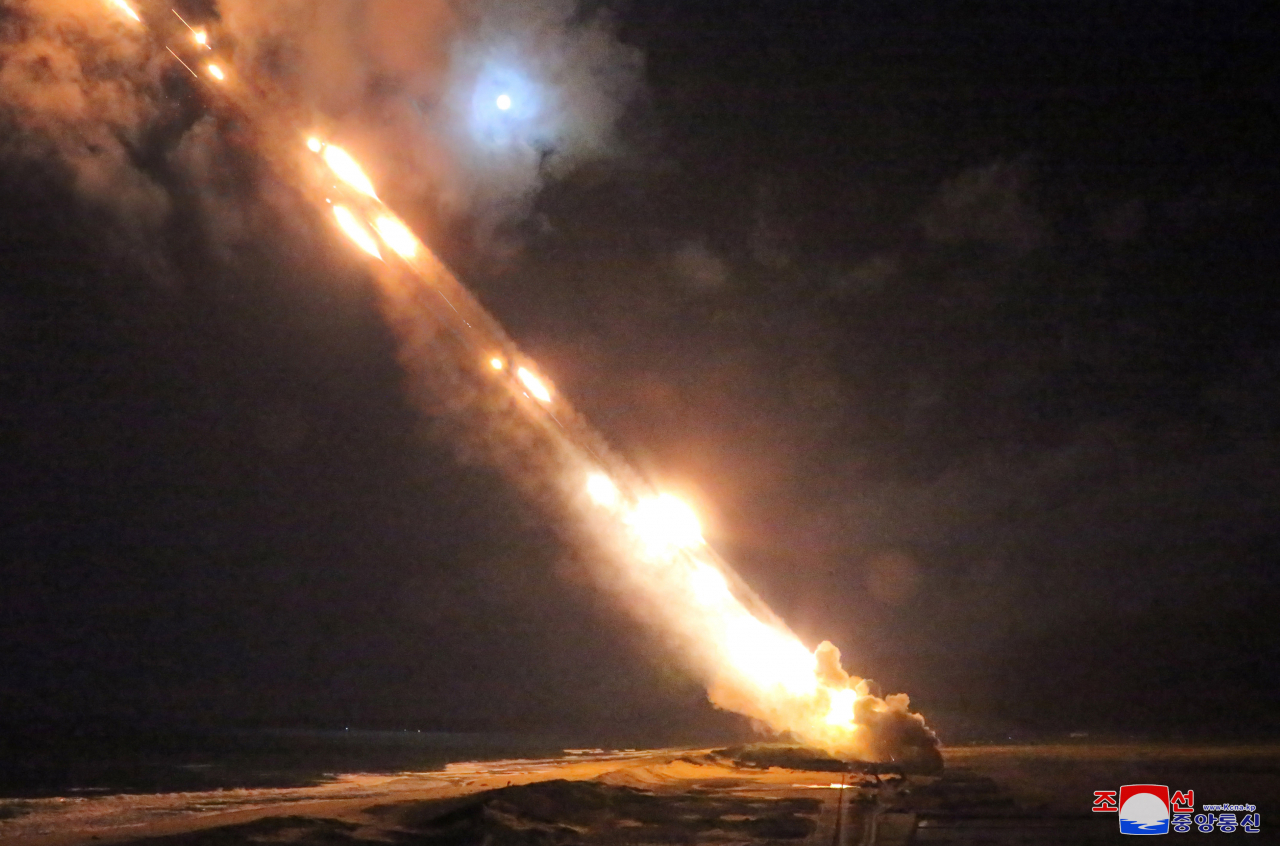North Korea may carry out more than one nuclear test, experts say
By Jo He-rimPublished : Oct. 23, 2022 - 14:55

North Korea could carry out consecutive nuclear weapons tests, experts say, as intelligence authorities warn of the rising possibility of Pyongyang conducting the first test of its kind in five years.
“It is likely that they need several tests to meet the requirements of their ambitious nuclear weapons program, which has tactical nuclear weapons, intermediate range and intercontinental ballistic missiles," Olli Heinonen, former deputy director general of the International Atomic Energy Agency, told Voice of America, in an article released on Saturday.
"They have probably more than one type of nuclear warhead, which all need to be tested,” Heinonen added.
Predicting Pyongyang's nuclear provocation is imminent, Seoul and Washington are gearing up for response measures. Last week, a high-ranking official at Seoul's presidential office said the office is "in 24-hour standby mode," and that it is preparing a detailed plan to handle the potential test.
South Korea’s spy agency had said in late September that North Korea may conduct a seventh nuclear test after China’s party congress ends in October and before the US midterm elections in November.
In a closed-door briefing to the parliamentary intelligence committee, South Korea's National Intelligence Service delivered its forecast that Pyongyang is likely to carry out the nuclear test between Oct. 16 to Nov. 7 -- a period that encompasses the start of the Chinese Communist Party’s 20th congress and before the US midterm elections slated for Nov. 8.
David Albright, the founder and president of the Institute for Science and International Security, also agreed with South Korean and American intelligence agencies’ assessments that North Korea is "ready to test" its nuclear weapons.
“It’s consistent with what the South Korean and US intelligences are saying that North Korea is ready to test," Albright was quoted as saying by VOA.
“If it's a high yield test, like 100, 150 kilotons or more, then they're working on developing to stage thermonuclear weapons that can be delivered by a missile. And they're probably need multiple tests that reach that point where they could actually put it on a ballistic missile," Albright said.
If it is a lower yield of some 10, 20, 30 or 40 kilotons, the purpose could either be for tactical weapons or for strategic weapons, he added.
In the last nuclear test carried out by Pyongyang in 2017, the explosion at the Punggye-ri test site had a force observed between 100 to 370 kilotons. A 100-kiloton bomb is six times more powerful than the one the US dropped on Hiroshima in 1945.
While these kinds of meetings could have led to negotiations or concessions in the old days, it's now leading to stronger military alliances against North Korea, Albright said, citing how South Korea and the US have expressed their commitment for a strong alliance.
The North Korean regime has been ratcheting up its nuclear rhetoric in recent months, introducing a new law to renew its nuclear doctrine and declaring itself as a nuclear-armed state.
On Sept. 9, North Korean leader Kim Jong-un announced that the North’s status as a nuclear weapons state “has now become irreversible,” and that it would never give up its nukes. The regime has also been boasting its advancement in operating tactical nuclear weapons.
In a report by Beyond Parallel on Oct. 20, no new activity was observed at Tunnel No. 3 of the North's Punggye-ri nuclear test site, confirming the US’ and South Korea’s assessment that Pyongyang is finished with all of the preparations needed at the tunnel. Beyond Parallel is an analytic project under the Center for Strategic and International Studies, a nonprofit think tank.
The institute said that the tunnel No. 3 is where the envisioned nuclear test would take place.
By Jo He-rim (herim@heraldcorp.com)



![[Exclusive] Korean military set to ban iPhones over 'security' concerns](http://res.heraldm.com/phpwas/restmb_idxmake.php?idx=644&simg=/content/image/2024/04/23/20240423050599_0.jpg&u=20240423183955)




![[Pressure points] Leggings in public: Fashion statement or social faux pas?](http://res.heraldm.com/phpwas/restmb_idxmake.php?idx=644&simg=/content/image/2024/04/23/20240423050669_0.jpg&u=)

![[Herald Interview] 'Amid aging population, Korea to invite more young professionals from overseas'](http://res.heraldm.com/phpwas/restmb_idxmake.php?idx=644&simg=/content/image/2024/04/24/20240424050844_0.jpg&u=20240424200058)









